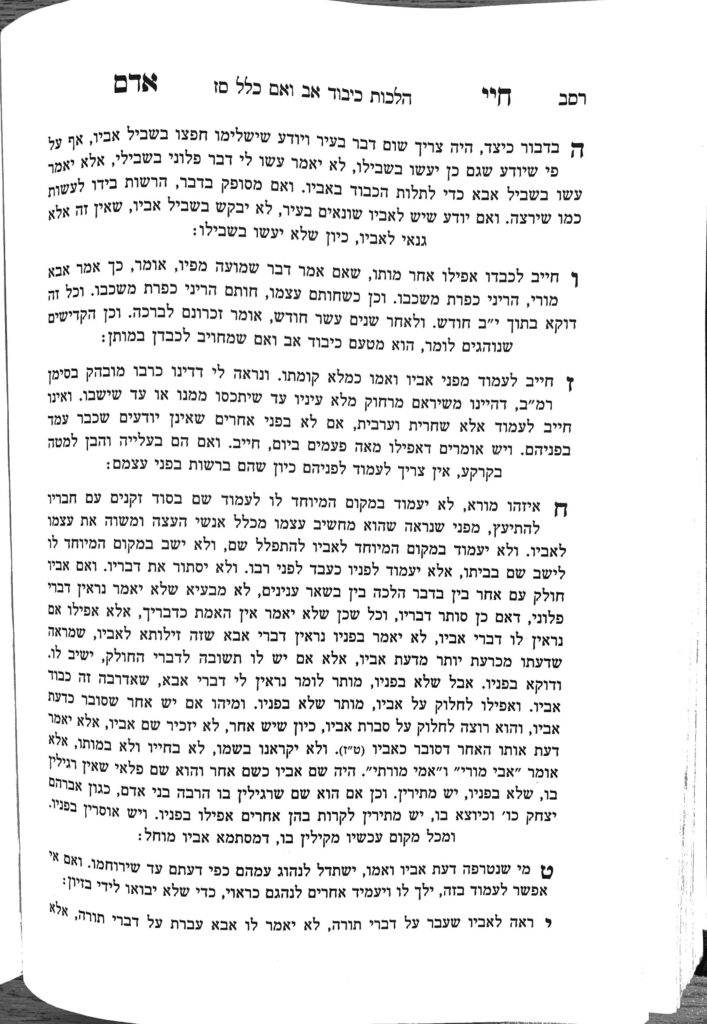We are beginning siman 11. The Chayei Adam discusses the level of kavod a child must have towards their parents even when the parents are not acting appropriately.
The Chayei Adam writes that the extent of kibud av v’eim is such that even if one is wearing expensive clothing and sitting as one of the heads of the community, if their mother or father comes and tears their clothing and hits them on the head, or takes the child’s pouch of gold coins and throws it to the sea (i.e., destroys it), the child should not embarrass the parent, and should not even admit their frustration over the loss. The child certainly should not get angry at the parent. Rather, the child should maintain silence, and draw strength to do so from their yiras shamayim; meaning, from the fear one has over He who gave us this mitzvah. Although it may be hard to remain silent, when adding Hakadosh Baruch Hu to the picture, it reminds the child that it is not only the parent one must listen to, but Hashem.
The Chayei Adam adds that nonetheless, the child can take their parents to beis din to recoup the loss of the object they destroyed. Rav Lopiansky points out the irony of this halacha. When asked, most children would never imagine taking their parents to beis din, but would not hesitate to talk disrespectfully to their parents or about their parents. Here, the Chayei Adam is teaching us that the halacha is the opposite: a child has no license to speak disrespectfully to their parents, but has the right to take them to a din Torah to recoup a financial loss.
Summary
The level of kavod a child must have towards their parents is such that even if their parents cause them extreme embarrassment or a significant financial loss, they should not embarrass their parent nor express their frustration. If there is a financial loss involved, they may take their parents to a din torah to recoup their loss.



